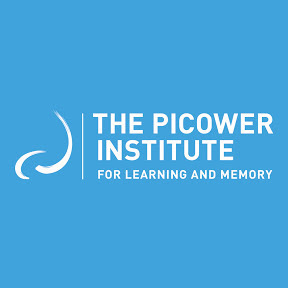
Aging Brain Seminar with Hideyuki Okano, MD, PhD, Keio University School of Medicine
Description
Aging Brain Seminar with Hideyuki Okano, MD, PhD, Keio University School of Medicine
*This seminar will be held in-person in MIT Building 46, Room 46-3310 (Picower Seminar Room). If you are attending from outside of MIT, please email Brittany Greenough at bgreeno@mit.edu to be issued a ticket to gain entry to the building.*
Talk Title: Modeling neurological diseases using iPS cell technologies and genetically modified non-human primates
Abstract: The investigation of human neurological/psychiatric disorders have been difficult based on the following reasons: i) Diseases Model Mice do not always recapitulate the pathophysiology of human diseases. ii) Genotype-Phenotype causal relationships are not always clear in many human neurological and psychiatric disorders. iii) It is extremely difficult to investigate what is taking place in vivo at the onset of the disease. iv) The low accessibility to the pathological foci in the human brain. v) The neuronal circuits responsible for the disease phenotypes are mostly unidentified. To overcome these, we are taking advantage of Take the Advantage of iPS cell technology and genetically modified non-human primates.
Human iPS cell (iPSC)-based techniques offer new opportunities for disease modeling and the development of new drugs, especially for conditions such as neurological and psychiatric diseases in which access to the affected cells and pathogenic sites is limited. So far, we have established patient-specific iPSCs from more than 40 neurological and psychiatric diseases, including amyotrophic lateral sclerosis (ALS), Alzheimer’s disease, Parkinson’s disease, and so on. Today, I am going to focus on the iPSCs-based investigation of ALS, which is a devastating neurodegenerative disease characterized by loss of upper motor neurons (MNs) and/or lower MNs (LMNs). Using iPSCs-MNs derived from familial ALS patients with FUS and TDP-43 mutations, we could identify Ropinirole (ROPI: Already approved as an anti-PD drug with D2R agonist) as a potential anti-ALS Drug which is further being investigated as a clinical trial (ROPALS trial). As a result of the ROPALS trial, we conclude that ROPI is a safe and effective drug for ALS patients. ROPI significantly suppressed the progression of ALS and prolonged the time to respiratory failure over the 1-year treatment period. This clinical trial proved that iPS cell drug discovery was useful as a new drug screening tool.
The common marmoset (Callithrix jacchus) is a small New World primate that has been extensively used in biomedical research models. There is also an increasing interest in common marmoset in Brain Science and as appropriate models for major human brain disorders (Okano, Annual Rev Neurosci, 2021). We succeeded in generating the world's first genetically modified (GM) marmoset with germline transmission by lentiviral mediated transgenesis (Sasaki et al., Nature, 2009) and genome-edited marmosets (GM) (Sato et al., Cell Stem Cell, 2016). I wish to mention our recent data on the generation of transgenic marmoset models of neurodegenerative diseases, including Parkinson's disease (PD) which overexpressed the mutant form of a-synuclein using a lentiviral vector. The PD model marmoset showed stage-dependent progression of the disease, such as sleeping disturbance followed by the motor deficit. In addition, I will mention a model marmoset of a neurodevelopmental disorder, the Rett syndrome, obtained by genome editing of MECP2 gene. Abnormalities in brain structure and function in these marmoset models may accelerate the discovery of disease biomarkers and mechanisms for translation.
Bio: Hideyuki Okano received his M.D. in Physiology from Keio University in 1983. After he obtained a Ph.D. degree in Molecular Biology of Myelin-related genes and myelin deficient mutant mice from Keio University in 1988, he held a post-doctoral position at Dr. Craig Montell’s Lab at Johns Hopkins University School of Medicine. He was appointed full professor at Tsukuba University School of Medicine in 1994, Osaka University School of Medicine in 1997, and returned to Keio University Medical School in 2001 as a full professor of Physiology. Since 2007, he has been a Dean of Keio University Graduate School of Medicine or a Dean of Keio University School of Medicine. He has been conducting basic research in the field of regenerative medicine including, neural stem cells and iPS cells, spinal cord injury, developmental genetics, and RNA binding proteins. He has been awarded a number of awards and honors including the Medal with Purple Ribbon in 2009, the first prize of the 51st Erwin von Bälz Prize in 2014, the 18th Takamine Memorial Daiichi Sankyo Prize in 2020, and the Uehara Prize in 2021. He aims to establish and provide patient-specific iPS cells and genetically modified non-human primate models for neuroscience research and to explore the pathogenic mechanisms of neurological/psychiatric disorders. Currently, he is the leader of the Brain Project in Japan (Brain/MINDS) and the President of The Japanese Society for Regenerative Medicine and The Japanese Society for Neurochemistry.
The Aging Brain Initiative is an interdisciplinary effort by MIT focusing on understanding neurodegeneration and discovery efforts to find hallmarks of aging, both in health and disease.

